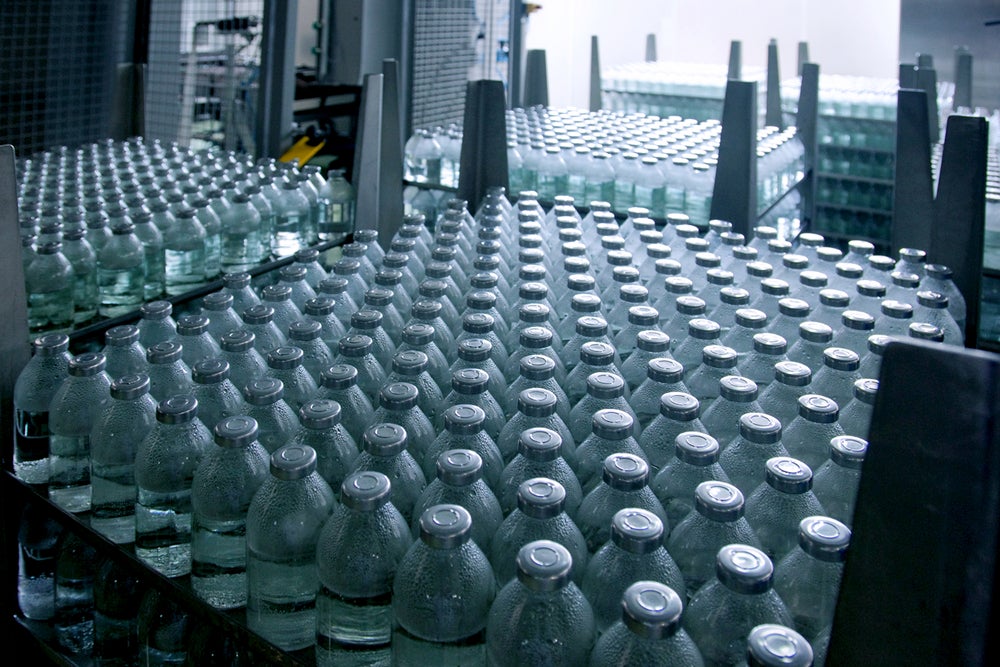
With more temperature critical products coming onto the market, such as biologics and cell and gene therapies, real-time monitoring is more essential today than ever. Most commercial pharmaceutical shipments include pallets and packages with temperature-sensitive products requiring a real-time tracking system, as well as several temperature data loggers to ensure close-to-product monitoring.
But monitoring temperature-related data does not in itself secure supply chain visibility. Actions can only be taken after an event when the product is inspected upon arrival. Manual readings of temperature data loggers at the destination take place too late to reveal incidents of temperature excursion during transport.
Monitoring the entire cold chain, in real-time, can ensure actions are taken immediately in the event of a critical incident. But putting real-time monitoring equipment on every pallet and in every shipment comes at a hefty expense.
Increased use of cold chain due to new medicines
Research by GlobalData analysts shows more than 8,000 cell, gene, and gene-modified cell therapies currently in the development pipeline.
Kevin Marcaida, Drugs Intelligence Analyst at GlobalData says: “According to our 2023 Looking Ahead report, biologics are forecast for remarkable growth of 39%, outpacing the anticipated 24% growth in total drug sales from 2023 to 2028. Looking forward, we expect that biologics could capture a substantial 57% market share, translating to a staggering $771.4 billion in sales by the end of 2028.”
This follows a surge in demand for cold chain storage during the pandemic (due to mRNA vaccines requiring a low temperature of minus 20–70°C). The market is continuing to grow, with increasing approval and usage of biologics.
This will bolster the need for cold chain storage and packaging and increase demand for state-of-the-art technologies for remote monitoring in cold chain pharmaceutical logistics.
Revolution of real-time monitoring
Data recording in real-time used to be difficult and expensive. But dependable continuous monitoring of temperature and humidity conditions is now possible due to modern data loggers.
Since Over the last 20 years, progress has been rapid, with remote monitoring becoming more accessible due to the development of the global cellular network. This allows a centralised view of the status of monitored products throughout their entire journey. Despite a few technological difficulties – including acceptance on aircraft, and battery life – deployment of real-time monitoring has been very successful.
However, the industry has continued to utilise both data loggers and remote monitoring as two separate technologies. This can be cumbersome and costly.
Benefits of modular real-time technology
Modular real-time technology is set to revolutionise the pharma industry by eliminating the need for two separate systems. By combining product temperature logging and real-time monitoring, you can obtain insights into the operational handling and location of the product from a single system.
Further, modular configurations use more cost-effective off-line monitors that communicate directly with as few as one real-time ‘parent’ device via Bluetooth Low Energy (BLE) intercommunication. Thus the number of real-time devices can be greatly reduced while maintaining full visibility.
This ‘parent’ device uploads to an open cloud platform with no complicated processes and handling required. It can provide proactive, early notifications alongside fully automated assessments on product stability – enabling quick decision-making if a critical event should occur.
The modular concept allows sharing of connectivity via intercommunication. Smaller shipments to clinical sites can be equipped with cost-efficient modular real-time devices; upon arrival, the recorded data is downloaded. Integration between devices and shipment planning software, warehouse management software, or IRT (Interactive Response Technology) means critical supply chain data is exchanged automatically and allows for early corrective actions such as replacement shipments or “first expire, first out” strategies, reducing losses.
SmartSystem – the best of both worlds
For more than 40 years, Swiss based Berlinger & Co. AG has served the market as a solutions provider for pharma cold chain temperature monitoring, providing hardware, software, and services that are exclusively created for pharma to support temperature monitoring and product release processes.
Berlinger’s break-through Modular Real-Time™ cold chain solution – SmartSystem – is the first climate-neutral product for cold chain monitoring of pharmaceutical products[i].
The hardware design of the SmartMonitor devices also incorporates the modularity concept, with the main components arranged in modules. This means they can be swapped out during refurbishment; most components can be reused, further reducing the carbon footprint of the devices.
SmartSystem offers multiple condition monitoring and pharma standard accuracy. Using Bluetooth technology – implemented in all SmartSystem devices – full real-time, global coverage is secured via cellular and wireless technologies. The result is savings in hardware investments and manual processes worth 60% compared to the roll-out of previous real-time monitoring systems.
With the introduction of Modular Real-Time™, Berlinger is revolutionising how decisions are made in pharmaceutical supply cold chains, thanks to the automated availability of critical information.
For more information on the Modular Real-Time™ technology, and its advantages for cold chain, real-time monitoring, download the paper below.
[i] https://www.berlinger.com/temperature-monitoring/solutions/berlinger-sustainability


